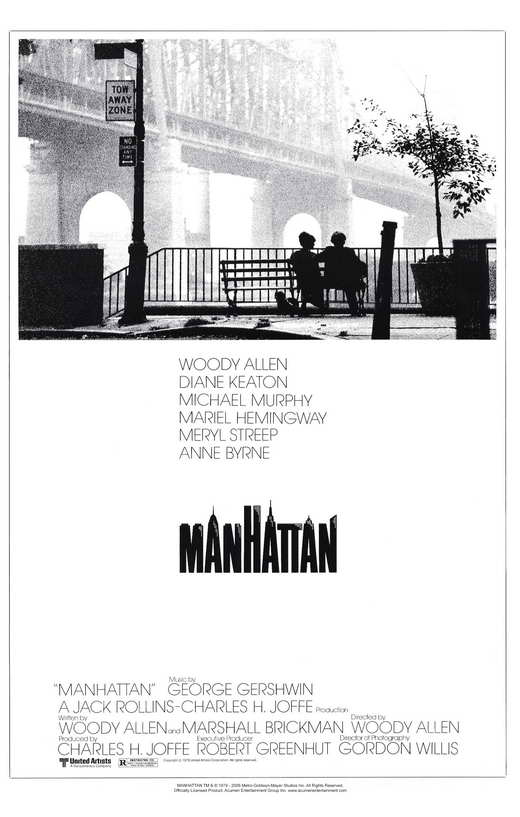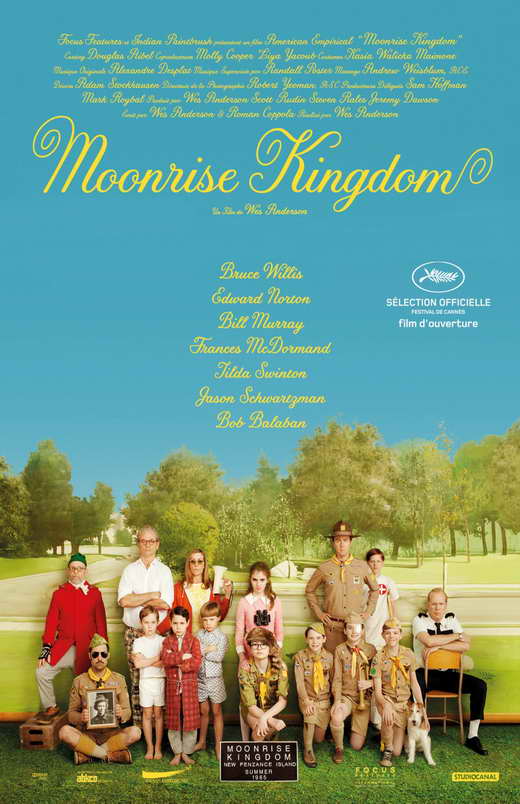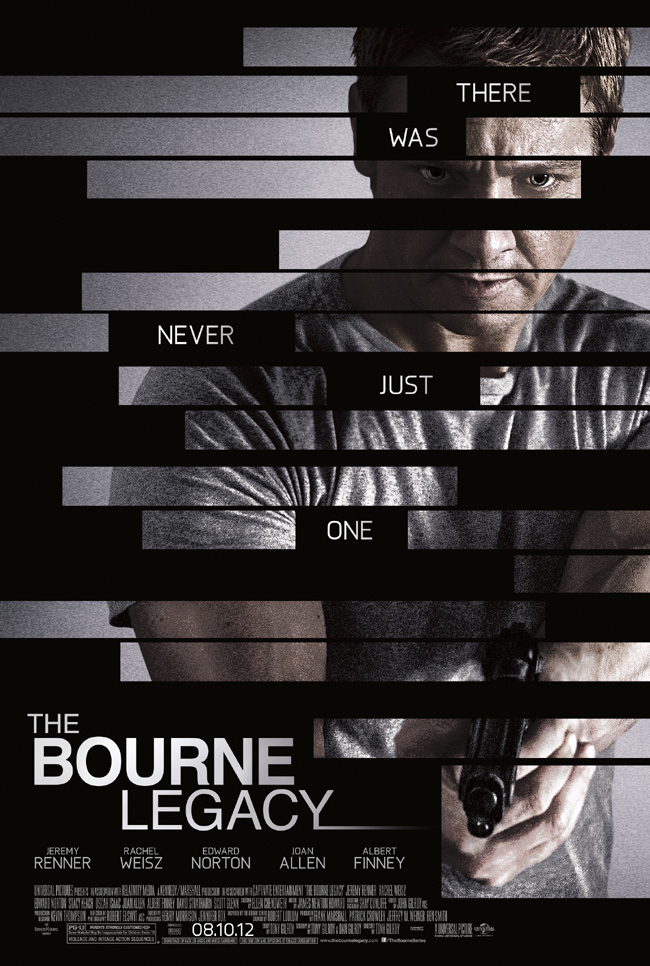 The 84th annual Academy Awards ceremony airs Sunday, Feb. 24, at 8 p.m. This is the culmination of an award season that seems to add several new award shows every year. I've never particularly cared about the other ceremonies. I just wait for the big one.
The 84th annual Academy Awards ceremony airs Sunday, Feb. 24, at 8 p.m. This is the culmination of an award season that seems to add several new award shows every year. I've never particularly cared about the other ceremonies. I just wait for the big one.For many people, it is understandably hard to care about the self-congratulatory love fest that is the Oscars. Even though the crowning of who is the year's best is entirely subjective and there is no correct answer, each year I'm once again emotionally invested in the final outcome.
It may seem silly to care about who will win at the Academy Awards, or any award show for that matter. It doesn't change anything. I will still adore a film that doesn't win or even get nominated. So, even though the outcome of the Oscars really doesn't matter in the big picture, why should I or anyone else care?
We care because when we fall in love with a movie we feel an emotional attachment to it and we will defend it to the bitter end. This is the same deep connection sports fans form to their chosen team. For myself and other film fanatics, the Oscars are our Super Bowl.
Beyond that, the Academy Awards have value in spotlighting films that the public may have missed and pointing people in the right direction.
There are a lot of films that come out in any given year. When they start making their way to DVD, it can be hard to decide what is worth investing time and money into. Instead of seeing the Academy Awards as a bunch of Hollywood blow hards patting each other on the back, look at it as a chance to be educated.
Who gets nominated and wins isn't an exact science and omissions will occur. It is certainly not a perfect system, anything that is opinion driven never will be. That is why a film like "The Dark Knight Rises", which many would say was not only one of the most popular films of the year, but also one of the best, was completely ignored. The Academy of Motion Picture Arts and Sciences has its biases and superhero movies is one of them.
The academy has been accused of being out of touch with the tastes of mainstream audiences. It is a fair criticism and the snubbing of "The Dark Knight Rises" is certainly an example of that. On the other hand, the Oscars aren't meant to merely mirror what is most popular, but to showcase excellence in filmmaking.
Sometimes what is popular and great is one and the same as with "Lord of the Rings" or "Titanic." Other times it is a film the general public missed entirely or would never consider watching.
Last year's big winner was "The Artist," a black and white silent film that most average moviegoers would dismiss outright as too old fashioned to be interesting to modern audiences. The shame in that is "The Artist" was one of the most charming and engaging films to come out in 2011. Thanks to the attention it received at the Academy Awards, people who would not have given it the time of day may give it a look.
Similarly, 2009's "The Hurt Locker" was little seen by audiences in theaters. It won against "Avatar" which made billions worldwide. You could debate which film is superior — I'm in "Hurt Locker" camp — but it was most definitely "Hurt Locker" that needed to have people pointed to it.
This year's nominations for best picture, for the most part, are a collection of films that have already found a mainstream audience. The exceptions are the French film "Amour" and the indie film "Beasts of the Southern Wild." Foreign language films and indie films often struggle to find an audience because they are rejected as too arty and therefore not as entertaining as a big blockbuster film.
This is a reasonable assumption as a lot of so called art films can be difficult to engage with, but a film like "Beasts of the Southern Wild" is a wonderful film for the whole family. It is the rare film that truly captures the perspective of a child including a sense of magic and wonder.
"Amour" is a harder sell to American audiences because not only is it a foreign language film, but it focuses on a love story of a couple in their 80s. I haven't seen "Amour" yet as I haven't had access to it.
I'll be the first to admit that I don't watch as many foreign films as I should, but, again, this is the value of the Academy Awards. It is an excellent guide to films you wouldn't even necessarily be aware of.
 When Heather Masse, a 2000 graduate of Fryeburg Academy, was younger she used to play and sing through a Dick Hyman playbook. Now, nearly 20 years later, Masse has not only met the 85-year-old jazz pianist, she has recorded the recently released "Lock My Heart" with him.
When Heather Masse, a 2000 graduate of Fryeburg Academy, was younger she used to play and sing through a Dick Hyman playbook. Now, nearly 20 years later, Masse has not only met the 85-year-old jazz pianist, she has recorded the recently released "Lock My Heart" with him. When thinking about Allen's exploration of love and relationship dynamics, the film that probably first comes to mind is "Annie Hall." While it is more overtly funny and accessible than "Manhattan," it also offers a more bittersweet look at love. "Annie Hall" is actually a deconstruction of a relationship from beginning to end.
When thinking about Allen's exploration of love and relationship dynamics, the film that probably first comes to mind is "Annie Hall." While it is more overtly funny and accessible than "Manhattan," it also offers a more bittersweet look at love. "Annie Hall" is actually a deconstruction of a relationship from beginning to end. "Manhattan" offers a different, although just as significant, final revelation for Allen's film alter ego, this time named Isaac.
"Manhattan" offers a different, although just as significant, final revelation for Allen's film alter ego, this time named Isaac. Zombies are considered mindless killing machines, but "Warm Bodies" starts with an intriguing premise: What if they weren't so mindless? What if they were aware of their state, but couldn't help themselves? What if they could fall in love?
Zombies are considered mindless killing machines, but "Warm Bodies" starts with an intriguing premise: What if they weren't so mindless? What if they were aware of their state, but couldn't help themselves? What if they could fall in love? For the last decade or so there has been a flood of new superhero films each summer and 2012 was no exception with three top notch examples of the genre.
For the last decade or so there has been a flood of new superhero films each summer and 2012 was no exception with three top notch examples of the genre. I have been complaining for years that recent movies starring kids are too condescending to their young audiences, but 2012 had a surprising amount of films centered around children that dealt in real emotions.
I have been complaining for years that recent movies starring kids are too condescending to their young audiences, but 2012 had a surprising amount of films centered around children that dealt in real emotions. The year also had its share of films that refused to play by the rules. Whedon's "Avengers" made big money, but he also wrote and produced the smaller "Cabin in the Woods," a subversive take on the horror genre. In the vein of the "Scream" series, "Cabin" twists genre conventions to wring out big laughs building to a conclusion that is audaciously over-the-top.
The year also had its share of films that refused to play by the rules. Whedon's "Avengers" made big money, but he also wrote and produced the smaller "Cabin in the Woods," a subversive take on the horror genre. In the vein of the "Scream" series, "Cabin" twists genre conventions to wring out big laughs building to a conclusion that is audaciously over-the-top. "The Bourne Legacy," a sequel without the titular main character, shouldn't have worked at all and yet, writer/director Tony Gilroy found a way to center a film around a new character (played by Jeremy Renner) that still felt a part of the world established in the previous three films. "Bourne Legacy" runs congruent with the actions of "Bourne Ultimatum," the third film in the series, making it less a sequel or prequel and more a parallel-quel. Renner's strong central performances and the presentation of some compelling ideas keep the film engaging.
"The Bourne Legacy," a sequel without the titular main character, shouldn't have worked at all and yet, writer/director Tony Gilroy found a way to center a film around a new character (played by Jeremy Renner) that still felt a part of the world established in the previous three films. "Bourne Legacy" runs congruent with the actions of "Bourne Ultimatum," the third film in the series, making it less a sequel or prequel and more a parallel-quel. Renner's strong central performances and the presentation of some compelling ideas keep the film engaging.